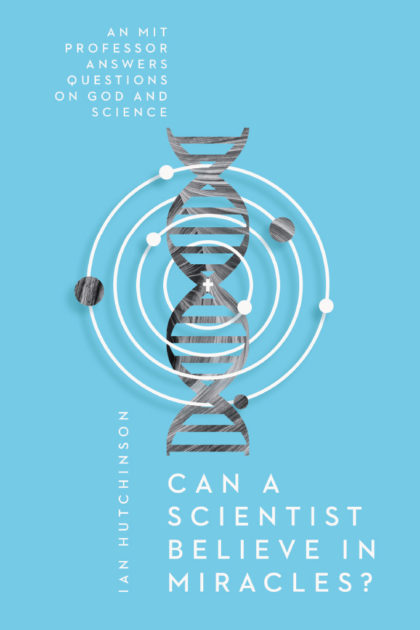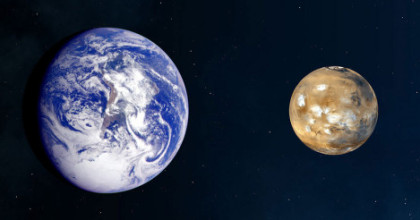
 )
)Last week we kicked off a tournament for the Most Pressing Science & Faith Question. The round 1 votes are in, and the polls are now open for round 2; use that link if the embedded poll below is not convenient. As before, voting is open until midnight EDT on Sunday (March 21). There were several very close decisions, and a couple even ended in a tie decided by a coin flip. So your votes matter!
To say farewell to these first round exiters, I’ll give them each a quick take, which is less than they merit but all this format allows for the moment. You can find those responses below the poll. (For the poll, you might need to use the right arrow key to get to round 2.)
Philosophy & Ethics
- Are atheism, materialism, methodological naturalism and evolution interchangeable? — Perhaps a dud as worded and fairly obviously ‘no.’ At the same time, I see a lot of reasoning that seems to run along the lines of ‘materialism is only true if evolution is true => I know materialism is false, so evolution must be false => any critique of evolution must therefore be true.’ I don’t think any of that actually follows, and I’m not even sure materialism is true if and only if evolution is true.
- Should animals be granted some or all of the same rights as humans? — Since there is not broad agreement on the set of rights all humans are entitled to, perhaps this is moot. Humans are distinct creatures, so I think making moral distinctions around them is valid. At the same time, I think Magdalena Zernicka-Goetz’ deep respect for all life is a model worth considering.
- How do we decide appropriate constraints for ex vivo research? — Collaboratively and proactively. I’m thinking here of topics like human embryo and organoid research. And I think a crucial ingredient is imagination. It is easy to be detached from cells and tissues that look and act nothing like us, so we need some imagination to understand what their experience might be like and even more crucially where the next steps might lead.
- Is significance proportional to physical dimensions? — Maybe too vague or too obvious. I see periodically sentiments about how insignificant humans are against the scale of the universe. Obviously many religions assess human worth in a different way. But I think even from a scientific perspective that approach represents an incomplete analysis. Despite the outcome in this poll, I’d like to come back to this one in more detail.
Theology & Religion

- Why does a good creation have so much suffering? — The problems of evil and suffering are obviously longstanding and not done justice by a few sentences. I chose this wording specifically because I find it helpful to look at Genesis 1 with the understanding that the word translated ‘good’ can be more about order and function than morality or pleasantness.
- When does science rule out a miracle? — The Catholic Church has established criteria on this subject, and in the context of canonization a narrow understanding of miracles probably makes sense. More informally, I’d like to see our understanding of miracles shift away from being so closely tied to whether there is an underlying physical mechanism. On some level, if anything happens in the physical world, there was a physical mechanism or process involved, which means some description of the event could be offered in scientific language. If a miracle is a form of communication, can we answer ‘who’ and ‘what are they saying’ without falling back to ‘how did they do it?’
- How does God interact with the physical world? — The image I come back to, and it is inspired at least in part by Tolkien’s Middle Earth creation story, is of God calling to his creations which then respond variously in the positive or negative. Here I don’t just mean calling to us as with Abraham or Moses, but all of creation at every level. How is that message mediated? I’m not sure; I’m not even sure that’s the right question.
- How should a Christian approach science as a calling? — With humility and curiosity. I think sometimes Christians can overemphasize science as a means to some other end, so I’d encourage some reflection on the value of science as science. And I think Francis Su has a good perspective on approaching the human aspect of that calling and how it brings us into relationship with others.
Origins
- Where does biological information come from? — I’m pretty surprised both this question and the one below went out in the first round, given how frequently I see people talking about these topics. We’ll cover both eventually in our evolutionary biology series.
- How does biological complexity increase? — See above.
- What would it take for a paradigm shift away from Big Bang cosmology or common descent? — As I understand it, both models are so well established that a complete rejection is nearly inconceivable. But there are ways in which both may be modified. On the cosmology side, I believe there are still significant questions about inflation to answer, and there is interest in models to explain the cause of the Big Bang and what may have preceded it, if anything. A unification of quantum physics and general relativity may inform one or both of those topics, as might an explanation of dark matter and/or dark energy. But the core idea of a universe expanding from a hot, dense state near thermal equilibrium is likely here to stay, in light of the cosmic background radiation. On the biology side, common ancestry of all living animals is similarly well supported. At the microbial level, there may be a point in the past prior to which there was so much horizontal gene transfer that the family tree concept breaks down. And life on Mars, past or present, might reveal that not all life in the universe shares a single origin. But common descent was never intended to stretch that far anyway.
- Are multiverses and cyclical cosmologies just atheism rescue devices? — While it is impossible to know for certain the internal motivations of scientists, there are lines of reasoning rooted in evidence and/or evidence-supported models that lead to various formulations of the multiverse or suggest the possibility of something before the Big Bang. In both cases, models are being extrapolated beyond the limits of current data and so we can’t say anything about multiverses or an eternal past just yet. But that extrapolation is not purely linked to specific ideologies.
The Future

 )
)- Should we put our hopes in a green revolution or a red planet? — As Christians, our ultimate hope is in Jesus. At the same time, we were commissioned to cultivate God’s creation, and so I think there is value in pursuing “green” technology to mitigate the impact of climate change, particularly because those impacts are likely to be felt disproportionately by categories of people we are called to care for. By contrast, while Martian colonization captures the imagination and may have merits of its own, it is hard to see it as a solution to the challenges of climate change for anyone but a few.
- Would simulating a universe be the same as creation? — In the days of Newton and Laplace, the accuracy of our calculations led us to believe we could calculate the universe past, present and future. Now, the power of our computer algorithms leads us to believe we could simulate the universe in a computer. At the same time, we are aware that not every conceivable question has an answer that can be computed, raising significant questions about whether it is any more plausible to compute the universe than to calculate it. For that reason, I think it is premature to think that we ourselves live in a simulation or that we could use computers to simulate something comparable to the universe.
- Will our descendants evolve beyond humanity? — Human evolution has not been strictly biological since at least as far back as the harnessing of fire to cook food, making it easier to digest and extract calories from. I think we will continue to become increasingly interdependent on technology, reducing the extent to which biological innovation is relevant. Throughout that process, our descendants will likely always identify ourselves as human. Perhaps what is more likely is that distant future generations will look back at their ancestors and decide they (and maybe even eventually those of us currently alive) were not human.
- What happens when we can time travel to the Resurrection? — Full disclosure: as much as I love a good time travel story, I strongly doubt we will ever have something like a DeLorean that allows a road trip to the past. Nevertheless, the possibility is tantalizing, isn’t it? Video footage of the stone rolling away, DNA samples from Jesus before and after, Holy Land tours during Holy Week–we could satisfy no end of curiosities and commercial ambitions. And yet, we live in a present reality where significant numbers of people, contrary to unequivocal and accessible evidence, are skeptical of claims far less extraordinary than returning to life from death. So I’d expect folks who did not want to believe in the Resurrection would still find a way not to believe.
When I was a budding scientist, John Polkinghorne’s The Faith of a Physicist was one of the first books to answer many of my questions about combining rigorous science with rigorous theology. Indeed, it introduced me to questions I didn’t even know I should be asking. Polkinghorne passed away last week. I am grateful for his guidance in understanding God’s Word and God’s world. I look forward to his insights on the world yet to come.
Andy has worn many hats in his life. He knows this is a dreadfully clichéd notion, but since it is also literally true he uses it anyway. Among his current metaphorical hats: husband of one wife, father of two teenagers, reader of science fiction and science fact, enthusiast of contemporary symphonic music, and chief science officer. Previous metaphorical hats include: comp bio postdoc, molecular biology grad student, InterVarsity chapter president (that one came with a literal hat), music store clerk, house painter, and mosquito trapper. Among his more unique literal hats: British bobby, captain’s hats (of varying levels of authenticity) of several specific vessels, a deerstalker from 221B Baker St, and a railroad engineer’s cap. His monthly Science in Review is drawn from his weekly Science Corner posts — Wednesdays, 8am (Eastern) on the Emerging Scholars Network Blog. His book Faith across the Multiverse is available from Hendrickson.

Leave a Reply